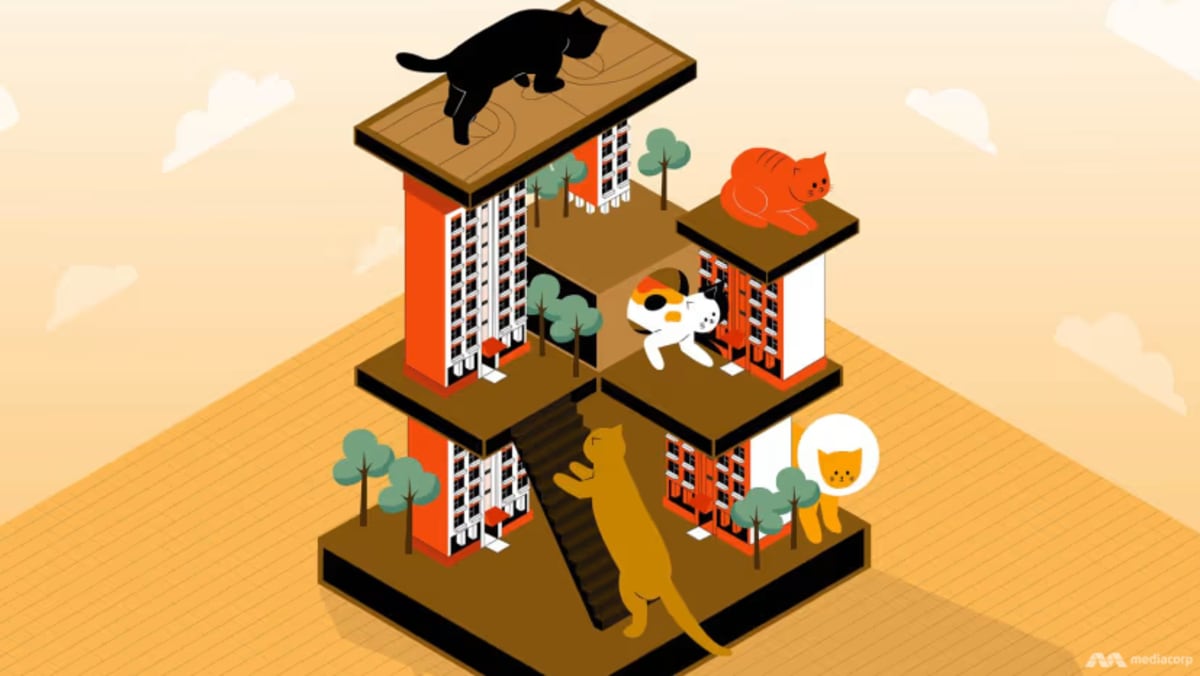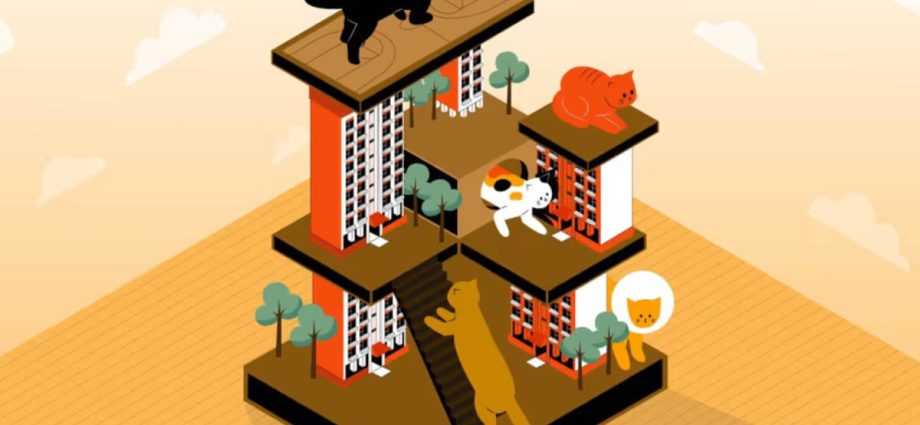
THE ROAD TO LICENSING CATS
The proposal follows AVS’ public consultation exercise on the framework, which garnered over 30,000 responses from September to November last year.
Close to 90 per cent of respondents said cats are suitable pets, with most of them also supporting cats being kept as pets in HDB flats.
The survey also found that over 80 per cent agreed that pet cats should be microchipped and licensed as licensing could improve the health, welfare and traceability of cats.
AVS also conducted focus group discussions this year with cat owners, non-cat owners, cat fosterers, animal welfare groups and veterinarians.
For one animal welfare group, the Cat Welfare Society (CWS), this cause has been the subject of over a decade of advocacy work.
In 2012, CWS launched a pilot cat ownership project in Chong Pang estate, where cat owners were allowed to keep their pets legally in their HDB flats provided certain conditions were met.
At the time, 90 per cent of the 126 cat owners were found to be responsible, while the remaining 10 per cent who did not heed the ownership guidelines perpetuated 90 per cent of the cat-related issues in the estate.
During door-to-door surveys conducted in 2022, CWS found that 90 per cent of the HDB non-cat owners did not have concerns about their cat-owning neighbours and had not faced cat-related inconveniences.
In response to TODAY’s queries, HDB said it works with other agencies and animal welfare groups to engage flat owners after it receives complaints about “unpermitted and irresponsible pet ownership in HDB flats”.
Over the past three years, the number of cat-related feedback received by HDB from residents had gone down. HDB received around 1,900 cases in 2020, 1,500 cases in 2021 and 1,300 complaints in 2022.
A majority of the feedback received was related to disamenities caused by cats, such as defecating in common areas. Most cases were resolved after flat owners rehomed their cats, said HDB.
HDB takes legal action against flat owners only as a “last resort”. Only two households have been fined since 2020 after failing to cooperate and rehome their cats which caused disamenities.
On what its future approach would be, HDB said it would continue to work with AVS on “refining the framework” before next year’s launch.
Under the proposed cat management framework, AVS limits household pets to:
- Two cats (and one dog of an approved breed, as per current limits) for each HDB flat
- Three cats or dogs, or a combination of three pets in total, for each private premise
- Additional pet licences will be subject to AVS’ approval, and HDB’s approval for HDB residents
During a two-year transition period, cat owners can apply to license and keep all existing pet cats. All pet cats will have to be microchipped before they can be licensed.
First-time licence applicants will have to complete a free online responsible pet ownership course, which will cover topics such as basic pet care skills and responsible pet ownership in the four vernacular languages.
It will be an offence to keep unlicensed pet cats after the transition period.
AVS also said that owners will have to ensure that cats are kept in a safe environment and have taken “reasonable steps” to protect cats from indoor and outdoor hazards, such as installing barriers to prevent roaming and high-rise falls.
House checks may be conducted to ensure pet cats are kept in proper condition and their welfare is not compromised.
It also “strongly encouraged” the sterilisation of pet cats as the procedure prevents unintended breeding, and has health and behavioural benefits, such as reduced risk of some cancers and less inclination to roam and caterwaul.
To support low-income households, free sterilisation and microchipping for pet cats will be rolled out under the Pet Cat Sterilisation Support programme by AVS in 2024.
“LITTLE STEPS TO GREAT PROGRESS”
For married cat owners and independent rescuers Iris Ng and Than Yan Ren, the proposed cat management framework and legalisation of cats in HDB flats bring some relief.
Ms Ng, 32, a sustainability manager, said she had always been conscious of the ban, which made their decision to adopt their cat “very stressful”.

